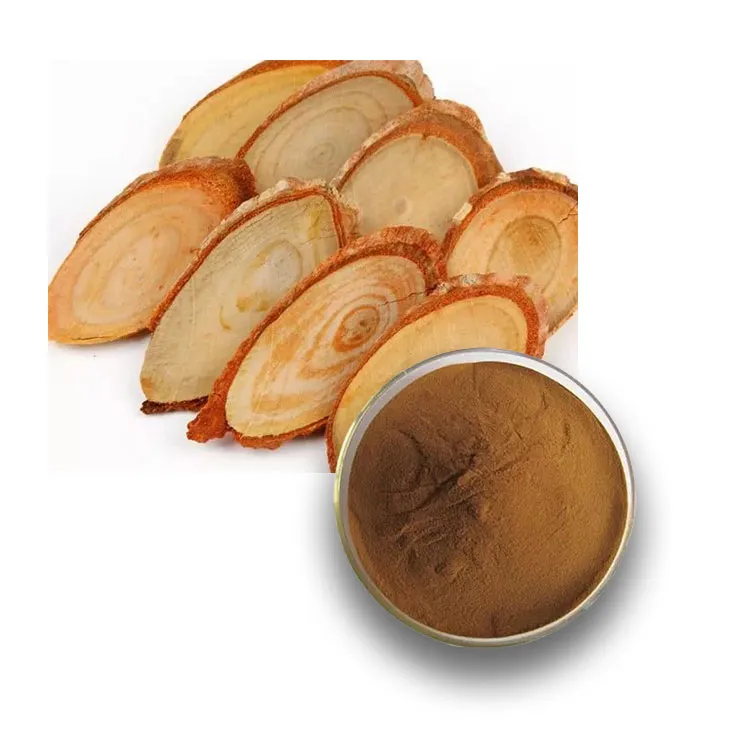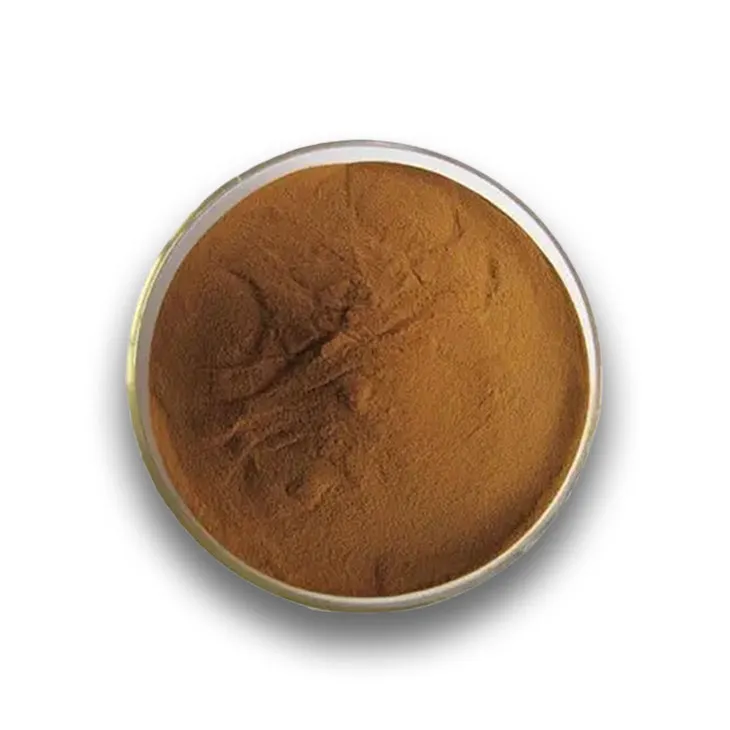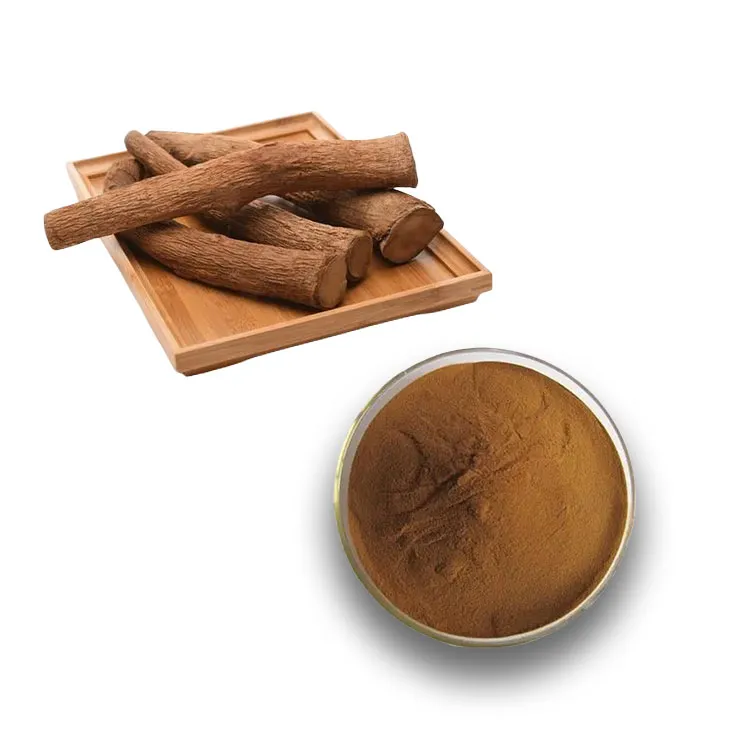- 0086-571-85302990
- sales@greenskybio.com
Supplier of Organic Tongkat Ali Extract Powder.
2024-12-01

Introduction
Organic Tongkat Ali Extract powder has emerged as a highly sought - after product in multiple industries. In the realm of health supplements, it is prized for its potential health - enhancing properties. In traditional medicine, it has a long - standing reputation for its various medicinal uses. The suppliers of this extract powder are at the heart of its availability in the market and thus hold a position of great significance.

The Importance of Organic and Sustainable Sourcing
Ensuring Organic Origin
Suppliers of organic Tongkat Ali Extract powder must place a high emphasis on the origin of the Tongkat Ali plant. The "organic" label is not just a marketing term but a guarantee of quality and purity. To ensure the source is organic, suppliers need to collaborate with farmers or collectors who adhere to strict organic farming standards. This means that the use of synthetic pesticides, fertilizers, and genetically modified organisms (GMOs) is strictly prohibited during the cultivation of Tongkat Ali plants.Organic farming practices for Tongkat Ali involve using natural compost and biological pest control methods. For example, certain beneficial insects can be introduced to the Tongkat Ali plantation to keep harmful pests in check without the need for chemical pesticides. This not only protects the environment but also ensures that the extract obtained from these plants is free from harmful chemical residues.
Sustainable Sourcing
In addition to being organic, the sourcing of Tongkat Ali must also be sustainable. Sustainable sourcing is crucial for the long - term availability of Tongkat Ali and for the preservation of the ecosystems where it grows. Suppliers should work with farmers or collectors who follow sustainable harvesting methods. This includes not over - harvesting the Tongkat Ali plants, allowing them sufficient time to regenerate.For instance, in some regions, there are regulations on the amount of Tongkat Ali that can be harvested per year per hectare. Suppliers need to be aware of these regulations and ensure that their sources comply with them. Moreover, sustainable sourcing also involves protecting the natural habitats of Tongkat Ali. This may include measures such as preventing deforestation in the areas where Tongkat Ali grows and promoting reforestation efforts.

Advanced Extraction Techniques
The Significance of High - Quality Extraction
The extraction process is a critical step in obtaining high - quality organic Tongkat Ali Extract powder. Using advanced extraction techniques is essential to preserve the active compounds present in the Tongkat Ali plant. These active compounds are responsible for the potential health benefits associated with Tongkat Ali. For example, some of the key active compounds include eurycomanone, which has been studied for its anti - inflammatory and aphrodisiac properties.Types of Extraction Methods
There are several extraction methods that can be used for Tongkat Ali. One common method is solvent extraction. In solvent extraction, a suitable solvent such as ethanol is used to extract the active compounds from the Tongkat Ali plant material. However, the choice of solvent and the extraction conditions need to be carefully optimized to ensure high - quality extraction. Another method is supercritical fluid extraction, which uses supercritical carbon dioxide as the extraction solvent. This method has the advantage of being more environmentally friendly compared to traditional solvent extraction methods as carbon dioxide is a non - toxic and easily removable solvent.Regardless of the extraction method used, it is important to control the extraction parameters such as temperature, pressure, and extraction time. These parameters can significantly affect the quality and yield of the extract. For example, if the extraction temperature is too high, it may lead to the degradation of some of the active compounds. On the other hand, if the extraction time is too short, the extraction may be incomplete, resulting in a lower concentration of active compounds in the extract.

Quality Testing Procedures
Testing for Contaminants
Good suppliers of organic Tongkat Ali Extract Powder should have a comprehensive quality testing program in place. One of the key aspects of quality testing is testing for contaminants. Contaminants can include things like pesticides (even in small amounts from non - organic sources), herbicides, and microbial contaminants. Microbial contaminants such as bacteria and fungi can pose a risk to the safety and quality of the extract powder.For example, Salmonella or E. coli contamination can be extremely dangerous if the extract powder is consumed. To detect these contaminants, suppliers can use various laboratory techniques such as microbiological culture methods and polymerase chain reaction (PCR) - based assays for pathogen detection.
Testing for Heavy Metals
Another important aspect of quality testing is testing for heavy metals. Heavy metals such as lead, mercury, cadmium, and arsenic can be present in the Tongkat Ali plant due to environmental pollution or improper cultivation practices. High levels of heavy metals in the extract powder can be toxic when consumed. Suppliers can use techniques such as atomic absorption spectroscopy (AAS) or inductively coupled plasma - mass spectrometry (ICP - MS) to accurately measure the levels of heavy metals in the extract powder.Testing for Active Ingredient Concentration
In addition to testing for contaminants and heavy metals, suppliers must also test for the accurate concentration of the active ingredients in the extract powder. This is important to ensure that the product has the expected potency and efficacy. For example, if the concentration of eurycomanone, a key active compound, is too low, the product may not provide the desired health benefits. Suppliers can use chromatographic techniques such as high - performance liquid chromatography (HPLC) to accurately measure the concentration of active ingredients in the extract powder.Competitiveness in the Global Market
Price Competitiveness
In the global market, price is a significant factor for suppliers of organic Tongkat Ali Extract Powder. To be competitive, suppliers need to balance the cost of production with the quality of their product. This requires efficient management of all aspects of the supply chain, from sourcing the raw materials to the final production and packaging of the extract powder.For example, suppliers can negotiate better prices with their raw material providers by establishing long - term relationships or by purchasing in bulk. They can also look for ways to optimize their production processes to reduce costs without sacrificing quality. However, it is important to note that while price is important, suppliers should not compromise on quality in an attempt to offer lower prices.
Delivery Time
Another aspect of competitiveness in the global market is delivery time. Customers expect their orders to be delivered in a timely manner, especially in the fast - paced supplement and traditional medicine industries. Suppliers need to have efficient logistics and supply chain management systems in place to ensure that they can meet customer demands in terms of delivery time.This may involve having reliable shipping partners, proper inventory management, and the ability to scale up production quickly if there is an increase in demand. For example, if a supplier receives a large order from a customer in a different country, they should be able to fulfill that order within the agreed - upon time frame without any delays.
Customer Service and Long - Term Relationships
The Role of Customer Service
Excellent customer service is essential for suppliers of organic Tongkat Ali Extract Powder to build long - term relationships with their customers. Customer service starts from the initial inquiry stage, where suppliers should be responsive and provide accurate information about their products. For example, if a customer has a question about the quality or usage of the extract powder, the supplier should be able to answer promptly and professionally.During the sales process, suppliers should also ensure smooth transactions, including providing proper invoicing, shipping information, and after - sales support. After - sales support can include things like handling customer complaints and providing product - related advice. For instance, if a customer experiences an issue with the product, the supplier should have a system in place to address the complaint quickly and effectively.
Building Long - Term Relationships
By providing consistent product quality, excellent customer service, and a stable supply chain, suppliers can build long - term relationships with customers around the world. Long - term relationships are beneficial for both the supplier and the customer. For the supplier, it means a stable source of revenue and a good reputation in the market. For the customer, it means a reliable source of high - quality organic Tongkat Ali extract powder.For example, a supplier who has been consistently providing high - quality products and excellent service to a health supplement company may be the first choice for future orders. This can lead to increased business opportunities for the supplier, such as the possibility of expanding into new product lines or entering new markets in collaboration with the customer.
FAQ:
Question 1: What are the key quality control standards for organic Tongkat Ali extract powder suppliers?
Suppliers need to ensure the source is organic and sustainable by working with reliable farmers or collectors following ethical and environmental - friendly practices. They must use advanced extraction techniques to preserve active compounds and ensure purity and potency. Also, comprehensive quality testing procedures for contaminants, heavy metals, and active ingredient concentration are required.
Question 2: Why is it important for suppliers to ensure the organic source of Tongkat Ali?
Ensuring the organic source is important because it meets the market demand for organic products. It also supports ethical and environmental - friendly practices. Working with reliable sources that follow these practices helps in obtaining a high - quality raw material for the production of Tongkat Ali extract powder.
Question 3: How can suppliers ensure the purity and potency of organic Tongkat Ali extract powder?
Suppliers can ensure the purity and potency by using high - quality extraction techniques. These techniques preserve the active compounds in the Tongkat Ali. Additionally, comprehensive quality testing procedures for contaminants and accurate concentration of active ingredients help in maintaining the purity and potency of the powder.
Question 4: What makes a supplier competitive in the global market of organic Tongkat Ali extract powder?
In the global market, being competitive means having a good balance in terms of price and delivery time. Providing excellent customer service, consistent product quality, and a stable supply chain also contribute to a supplier's competitiveness in the market of organic Tongkat Ali extract powder.
Question 5: How do quality testing procedures benefit the supply of organic Tongkat Ali extract powder?
Quality testing procedures benefit the supply by ensuring that the product is free from contaminants and heavy metals. It also verifies the accurate concentration of active ingredients. This helps in providing a high - quality product to the customers and building a good reputation for the supplier.
Related literature
- Organic Tongkat Ali: Sourcing and Quality Assurance"
- "The Role of Suppliers in the Organic Tongkat Ali Extract Powder Market"
- "Quality Control in Organic Tongkat Ali Extract Powder Production"
- ▶ Hesperidin
- ▶ citrus bioflavonoids
- ▶ plant extract
- ▶ lycopene
- ▶ Diosmin
- ▶ Grape seed extract
- ▶ Sea buckthorn Juice Powder
- ▶ Beetroot powder
- ▶ Hops Extract
- ▶ Artichoke Extract
- ▶ Reishi mushroom extract
- ▶ Astaxanthin
- ▶ Green Tea Extract
- ▶ Curcumin Extract
- ▶ Horse Chestnut Extract
- ▶ Other Problems
- ▶ Boswellia Serrata Extract
- ▶ Resveratrol Extract
- ▶ Marigold Extract
- ▶ Grape Leaf Extract
- ▶ blog3
- ▶ blog4
-
The best lemon juice powder in nature.
2024-12-01
-
Organic Vitamin K2 Powder Suppliers
2024-12-01
-
Bulk purchase of L - tyrosine.
2024-12-01
-
Vitamin K2 Manufacturers
2024-12-01
-
100% Pure Natural Rutin.
2024-12-01
-
Chinese Citrus Bioflavonoid Suppliers.
2024-12-01
-
Curcumin Extract
2024-12-01
-
Grape Seed Extract
2024-12-01
-
Beta Carotene
2024-12-01
-
Panax Ginseng Leaf Extract
2024-12-01
-
Polygonum multiflorum extract
2024-12-01
-
Giant Knotweed Extract
2024-12-01
-
Maitake Mushroom Extract
2024-12-01
-
Angelica sinensis extract
2024-12-01
-
Eyebright Extract
2024-12-01
-
Lily extract
2024-12-01





















